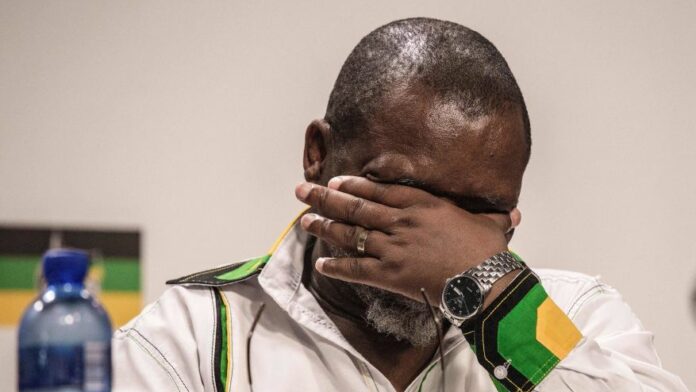
THE fact that South Africa still did not have a suitable mining cadastral system in operation a year after he had given his department a six month deadline to deliver it was “a thorn in my flesh”, according to Mineral Resources and Energy minister Gwede Mantashe.
He was responding to media questions at the PGM’s Industry Day held in Johannesburg on Wednesday. Mantashe had made the delivery prediction on the system at the same conference in March last year. He admitted he was still not in a position to state when the new system would be introduced.
The new system is needed to replace the SAMRAD (South African Mineral Resources Administration System) system which government launched in 2011, but which proved to be an unworkable disaster.
Mining cadastral systems are crucial for the efficient identification of ownership over prospecting rights and the granting of new prospecting rights to exploration companies.
South Africa has been outclassed in this regard by neighbouring countries like Botswana and Namibia which have attracted far greater investment from exploration companies compared with South Africa despite South Africa’s more attractive geology.
Government’s inability to deliver on this has seriously frustrated the industry. In June last year Minerals Council CEO Roger Baxter commented: “The Minister has admitted the licencing regime is a shambles and that SAMRAD does not work.
“We are at the cusp of seeing some changes but those changes need to be implemented. I can sit here and say we have made all this progress but it counts for nux unless we see an exploration plan released and see the adoption of a globally competitive cadastral system.”
Asked what precisely was holding up delivery of the system Mantashe cited government bureaucracy. He commented: “I worked in the trade union movement for 25 years. In the trade union movement decisions are taken and you have it.
“In government you have to go and ask for the procurement framework to be drawn up and all that. It’s a long process. At least they have said yes now. The cadastral system is out to tender and we are hoping to implement it. We are hoping it will be on stream sooner rather than later.”
Asked for a more accurate prediction on when the new system would be introduced Mantashe replied: “I am working on it. I have learnt not to put time frames on things over which I do not have full control.”
Regarding the issue of South Africa losing out on exploration to countries like Botswana and Namibia Mantashe said the reasons lay with the South African government but also the “greater freedom in society” allowed in South Africa.
“Government is to blame, I know that. But sometimes it is the freedom in society that tends to be an obstacle.”
Mantashe cited as an example the environmental opposition to Shell’s proposed seismic testing for oil and gas along South Africa’s eastern coastline which was blocked through legal action in December.
He commented: “That was not exploration. It was to check if there was a deposit present so that they could move to the next step which would be exploration.
“They were taken to Court. That does not happen in our neighbouring countries. So that’s why Shell gets harassed out of the Eastern Cape and it goes to Namibia and discovers oil.”











